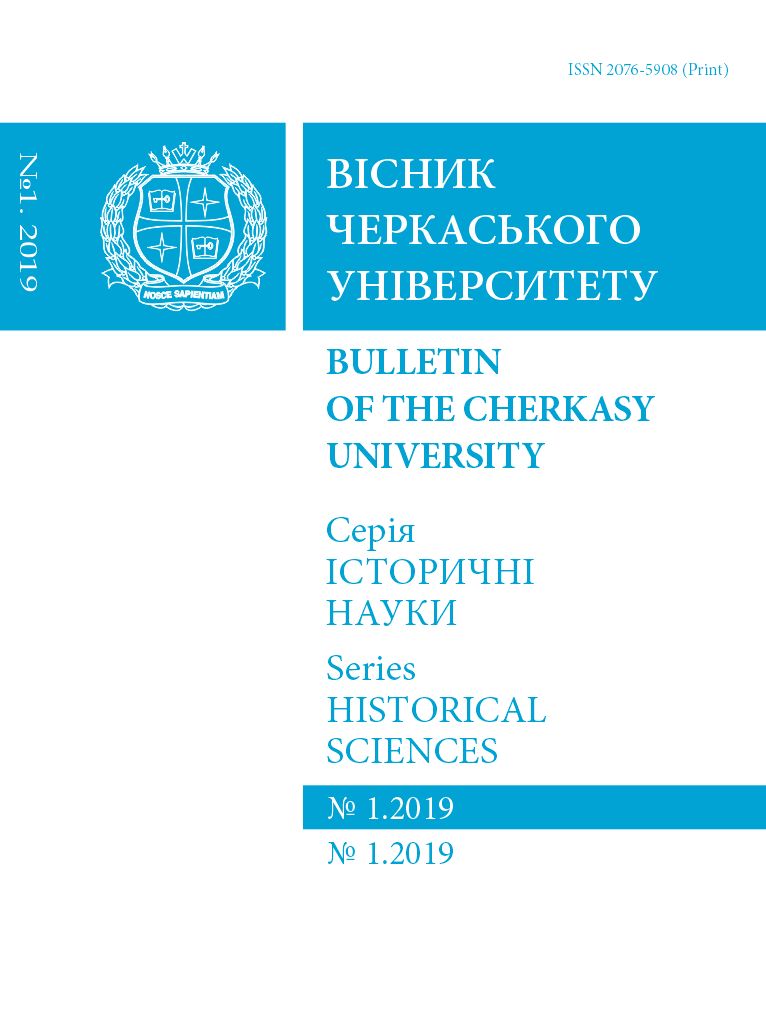Відродження в історії європейської цивілізації: передумови, ідеї, адепти
##plugins.themes.bootstrap3.article.main##
Анотація
У статті висвітлено послідовну еволюцію Відродження як могутнього культурного руху у межах XIV-XVI ст., в ході якого виникла нова культура, нова система національних літератур, нова філософія і наука. Розкрито передумови виникнення та специфічні особливості епохи Відродження в історії європейської цивілізації, охарактеризовано творчість найвидатніших представників доби Ренесансу. Охарактеризовано процес формування гуманістичної, естетично-художньої спрямованості ренесансної культури на противагу релігійній домінанті у культурі середньовіччя.
##plugins.themes.bootstrap3.article.details##
Посилання
Безвершук Ж. О. Ренесанс (Народження гуманізму. Нова концепція людської особистості і нова модель освіти. Титани італійського відродження). Українська та зарубіжна культура. К., 2001. С. 158–187.
Борецький М. Доба Європейського Відродженні (Ренесанс). Зарубіжна література. 2000. № 43. С.1–10.
Год Б. Г. Європейське Відродження: історія, політика, педагогічна думка (нариси): наук.-навч. вид. Полтава: АСМІ, 2008. 220 с.
Давиденко Г. Й., Акуленко В. Л. Історія зарубіжної літератури середніх віків та доби відродження: навч. посіб. для студ. вищ. навч. закл. Київ : Центр учбової літератури, 2007. 248 с.
Історія зарубіжної літератури. Середні віки та Відродження / під ред. М. С. Шаповалова. Львів : Світ, 1993. 340 с.
Єфименко В. В. Культура відродження. Гуманізм як ідеологія відродження. Історія світової культури. К., 1994. С. 225–239.
Крип’якевич І. П. Гуманізм і ренесанс. Центри гуманізму. Архітектура. Різьба й малярство. ХV–ХVІ століття доба Відродження. Всесвітня історія. Кн.2. Київ, 1995. С. 180–198.
Крижановська О. О., Крижановський О. П. Історія середніх віків: Вступ до історії західноєвропейського Середньовіччя. Курс лекцій. Київ: Либідь, 2004. 368 с.
History of the Renaissance. URL: http://www.historyworld.net/wrldhis/plaintexthistories.asp?historyid=ac88
Hale J. R. The Civilization of Europe in the Renaissance. New York, 1995. 672 р.
References
Bezvershuk J. O. Renaissance (The birth of humanism. A new concept of the human personality and a new model of education. Titans of the Italian Renaissance). Ukrainian and foreign culture. K., 2001. P. 158–187. (in Ukr.)
Boretskyi M. (2000) The Age of the European Revival (Renaissance). World Literature. No. 43. P.1–10. (in Ukr.)
God B. G. (2008) The European Renaissance: history, politics, pedagogical thought (essays): science-science. view. / B.V. God; rec. : G. E. Alyaev, O. P. Kryzhanivskyi, G. V. Trotsko. Poltava: ASMI. 220 p. (in Ukr.)
Davydenko G.Y., Akulenko V.L. (2007) History of foreign literature of the Middle Ages and the Renaissance: education. manual for students higher education closing Kyiv: Center for Educational Literature. 248 p. (in Ukr.)
History of foreign literature. The Middle Ages and the Renaissance (1993) / ed. M. S. Shapovalova. Lviv. 340 p. (in Ukr.)
Yefimenko V. V. (1994) Culture of revival. Humanism as an ideology of revival // History of world culture. K. P. 225–239. (in Ukr.)
Krypyakevich I. P. (1995) Humanism and Renaissance / Centers of Humanism. Architecture. Carving and painting. 15th–16th centuries, the era of the Renaissance // World History. Book 2. Kyiv. P. 180–198. (in Ukr.)
Kryzhanovska O. O., Kryzhanovskyi O. P. (2004) History of the Middle Ages: Introduction to the history of the Western European Middle Ages. Course of lectures. Kyiv: Lybid. 368 p. (in Ukr.)
History of the Renaissance. URL: http://www.historyworld.net/wrldhis/plaintexthistories.asp?historyid=ac88 (in Eng.)
Hale J. R. (1995) The Civilization of Europe in the Renaissance. New York. 672 р. (in Eng.)

